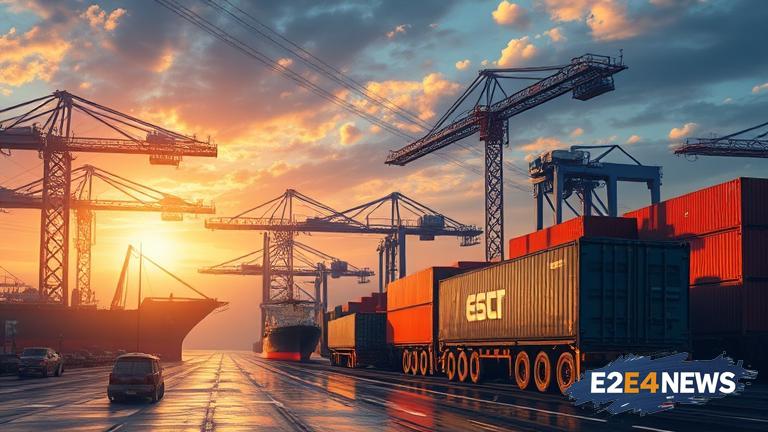The global economy is facing a period of uncertainty as trade tensions between major economies continue to rise. The ongoing trade war between the United States and China has been a major contributor to this uncertainty, with both countries imposing tariffs on each other’s goods. This has led to a decline in trade between the two nations and has had a ripple effect on other economies around the world. The International Monetary Fund (IMF) has warned that the trade war could have a significant impact on global economic growth, with some estimates suggesting that it could reduce growth by as much as 0.5%. The trade tensions have also led to a decline in business confidence, with many companies delaying investment decisions until the situation becomes clearer. The uncertainty has also had an impact on financial markets, with stock prices and currency values fluctuating wildly in response to trade-related news. The situation has been further complicated by the ongoing Brexit negotiations, which have created uncertainty about the future of trade between the UK and the EU. The EU has also imposed tariffs on certain US goods, in response to the US tariffs on steel and aluminum. The trade tensions have also had an impact on other economies, including Canada, which has seen a decline in exports to the US. The Canadian government has been working to diversify its trade relationships, including signing a new trade agreement with the EU. However, the trade tensions have also created opportunities for other economies, such as Vietnam and Mexico, which have seen an increase in exports to the US. The situation remains fluid, with negotiations between the US and China ongoing. The IMF has called for a resolution to the trade tensions, warning that a prolonged period of uncertainty could have serious consequences for the global economy. The World Trade Organization (WTO) has also warned that the trade tensions could lead to a decline in global trade, which could have a negative impact on economic growth. The trade tensions have also raised concerns about the potential for a global recession, with some economists warning that the situation could lead to a decline in economic activity. The situation is being closely watched by economists and policymakers around the world, who are waiting to see how the situation will unfold. The trade tensions have also had an impact on consumers, who are facing higher prices for certain goods due to the tariffs. The situation has also created uncertainty for farmers and manufacturers, who are facing declining exports and higher costs due to the tariffs.
